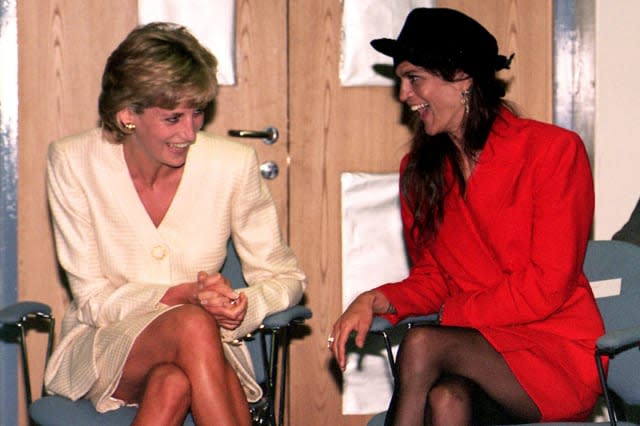'Diana brought this serenity - and when she left there was awe'

With a hug, a handshake or a comforting word, Diana, Princess of Wales helped change public attitudes to those living with HIV or children maimed by landmines.
Julian La Bastide, 50, a former senior nurse manager who ran a team caring for HIV patients, described as "groundbreaking" Diana's decision to meet and come into contact with Aids sufferers, ostracised by their families, friends and sometimes the medical profession.
He met Diana four times in the late 1980s and early 1990s while working at the Mildmay Hospice and contrasted the visits of the self-effacing Princess with those by the exuberant Sarah Ferguson, Duchess of York.
Mr La Bastide said: "Diana was very quiet, very calm and not your 'celebrity' type person.
"When Fergie came in, she was like a court jester and she got all the patients laughing, joking - great fun - but once she's gone, she's gone.
"Diana brought this serenity, this peace, she was just very composed, very quiet and when she left there was awe - all the patients and staff, there was just this sense of everyone feeling awe."
The Princess made 17 visits to the Mildmay in Shoreditch, east London - around four publicly - sometimes arriving in the evening to chat to staff and patients, and during one arrival made headlines by publicly shaking the hand of a HIV patient.
Mr La Bastide said during a visit in 1991, she chatted to a patient for 40 minutes before meeting the next.
He said about her trips: "She wanted to know that person's story and really understand what it was like for that person - it wasn't like 'I'm here to have my photo taken' thing - she wanted to know them.
"It was huge within the HIV community, the impact that had, because there was someone on their side, someone famous.
"As a worker in HIV, the impact was huge because some of that stigma was lifted, you could talk about it without all the negativity, there was a positivity that it brought to the illness."
The former senior nurse manager, who works as a consultant clinical project manager at the Mildmay, now a hospital for Aids patients, said Diana's visits had an added importance as they were made when society was not as liberal towards the gay community as it is today.
The 50-year-old said at the time, the age of consent for gay men was higher than their heterosexual peers and the controversial Section 28 rule - banning the promotion of homosexuality by local councils - was in force.
Diana not only supported the Mildmay, but was patron of the campaigning organisation the National Aids Trust (NAT) which was established in 1987.
Deborah Gold, the NAT's chief executive, said Diana was "very passionate" about supporting those with HIV and trying to end the stigma they faced.
She said: "The impression I get from those that knew her, she was particularly drawn to, and sympathetic to, people who were particularly vulnerable or who were excluded in some way from society.
"That was something she found really important and motivated her in the types of work that she was therefore getting involved in. And it was surprising because it was and remains something that's politically more difficult.
"It wasn't a simple or easy thing for her to support, and it was something she was willing to use her reputation, her influence to get behind which both made a difference and involved a level of bravery - of being willing to stand up and be counted."
The Princess's campaign to help outlaw landmines saw Diana cuddling a maimed teenager and famously walking through a minefield being cleared by the HALO Trust in Angola in 1997.
But Diana never saw her work come to fruition as she died before the international treaty to ban the military weapons was signed.
James Cowan, the HALO Trust's chief executive, said: "This sudden intervention of Princess Diana, a figure of truly global proportions, transformed the world's view of this problem, and much as her intervention with HIV focused attention so with landmines she achieved a similar transformative effect."


